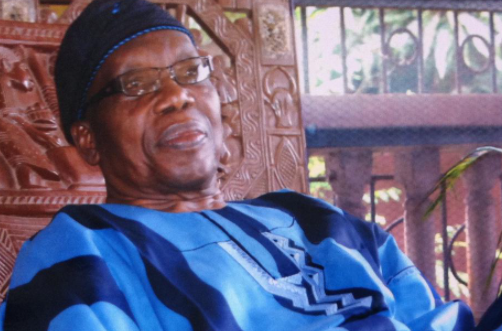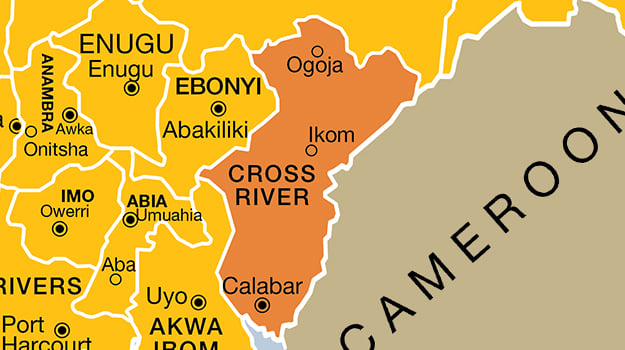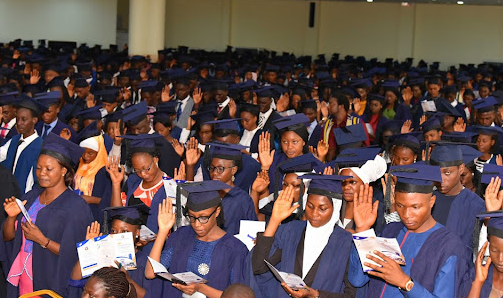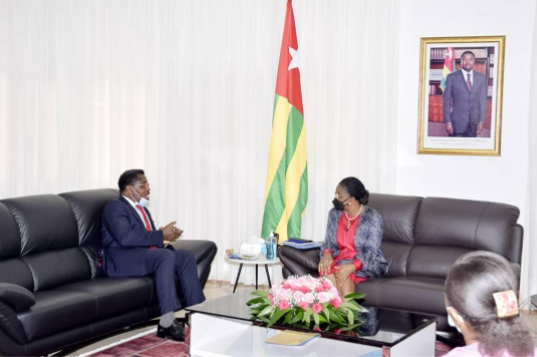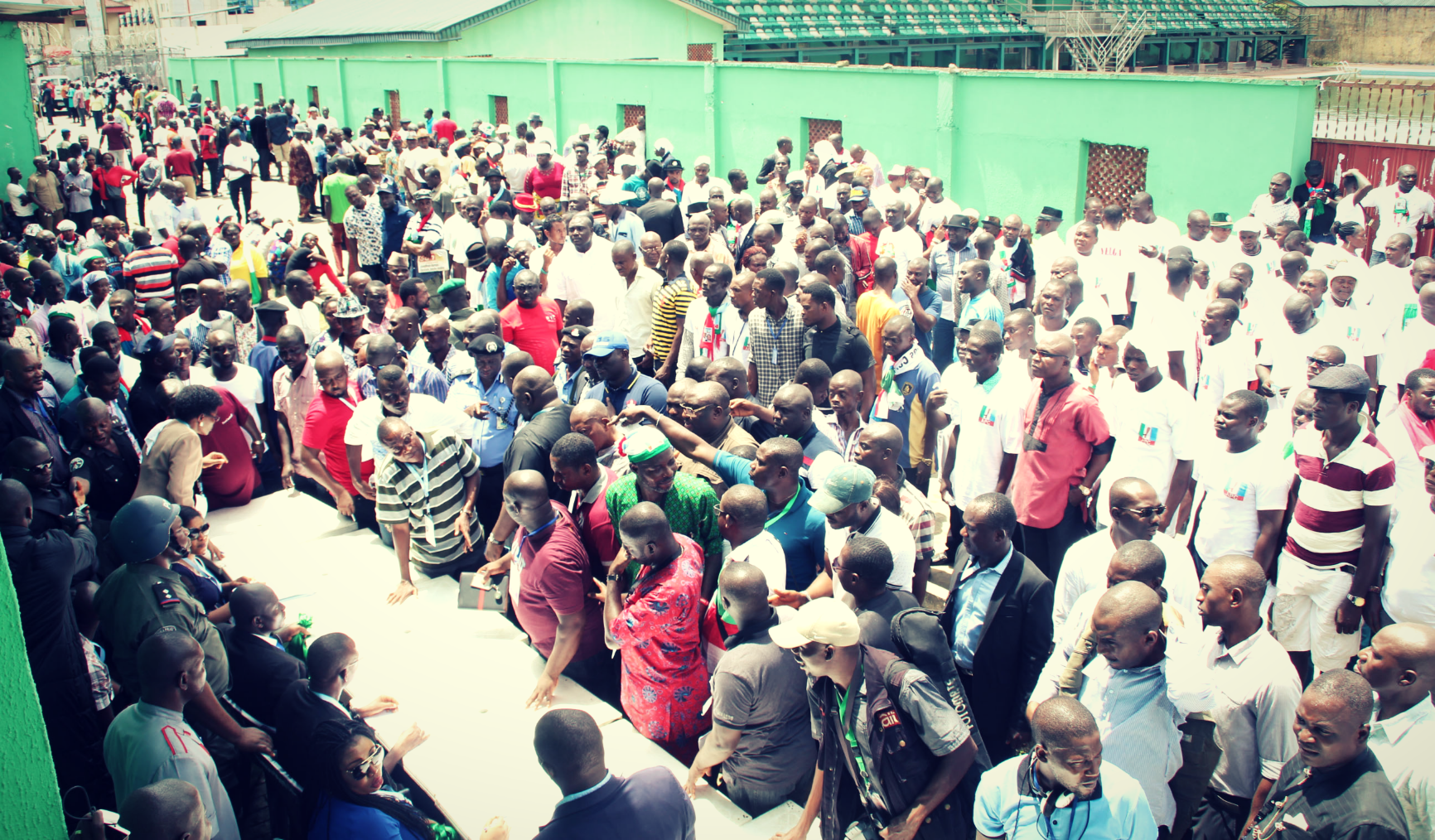BY OJI ONOKO
The members of the panel looked at him. What he had just told them warranted his immediate dismissal. He was asked instead to step out while they consulted among themselves. Outside, the young man could not contain his restlessness. He knew the Royal Academy of Dramatic Arts, London did not toy with its laid down guidelines which required everyone, no matter his status, to audition before admission. All his life, however, he had spent reading science subjects. It was because of this that his parents sent him to England to pursue a career in medicine. But no sooner had he stepped onto English soil than he developed cold feet for medicine. Staying in a small place called Old Ham, he became involved with a theatre group called Old Ham Repertory Company.
When he moved over to Manchester, he spent almost all his time poring over theatre books at the library. The more he did this, the more he was determined to change his course. His mind went back to his younger days in Nigeria when the late theatre guru, Hubert Ogunde, was a constant visitor to their home. A close friend of the family, he even married one of his nieces and always talked about the theatre on each call. His stories always kept him gaping. Now he knew why. Theatre is his profession. Not medicine. He took the decision single-handedly. His parents were aghast on hearing the news. He had to leave Manchester and started rooming around Europe in protest. He did whatever he could lay his hands on, slept wherever he could find and occasionally pilfered to stay alive.
He was like a tramp. For one year, he lived in the streets of Paris without a future to look forward to. It was a carefree life. He mixed with street urchins and vagrants. Then one day an uncle of his ran into him and was shocked. They had been trying to locate him for a whole year and here he was almost in rags! The uncle grabbed him, afraid he would resist. The young Bayo Oduneye burst into tears. Asked why he chose the kind of life he was living, he poured out his soul. “My uncle then spoke to my father who now said I could do whatever I wanted to,” he recalls now in his well-furnished National Troupe of Nigeria office at the National Theatre, Lagos, a mischievous smile on his lips.
Advertisement
He wanted the best, and the Royal Academy of Dramatic Arts was where he wanted to study his chosen profession – theatre. But he had little to offer in practical terms to the panel of interviewers! At the time, it was very difficult for any black person to get in there, even professionally proficient ones. He took a chance. “I was going to be a medical doctor,” he began. “But something in me wants me to be in the theatre,” he had confessed to the panellists. “If you give me a chance to come in, I would be a good student.”
When he was eventually called in, he thought he would be told he had missed his way. To his amazement, they told him they were willing to give him an opportunity. “That was how I got in,” he says, excitement still in his voice. At the Academy, he chose the behind-the-scene area of stage management. It is a specialised aspect of theatre that requires discipline and level-headedness. It demands meticulously taking down notes of the director’s blockings and liaising with the lighting designer, set designer, props man, make-up artist among others. In fact, once the play opens, the stage manager takes charge of the production as the director is deemed to have completed his task.
He was able to avail himself of the opportunity. “You see. I’m fortunate,” he says. “I can design, build my set, light and direct,” he says. The latter skill he actually studied at Carnegie Melon University, P.A., USA. “After you have stage-managed two, three, four plays with three, four different directors, you begin having ideas of how it can be done,” he says. “Actually, I went into directing because of my first area of specialization which is stage management.” Life was good for him in America after his course. He got a job as workshop director in an all-back theatre company in New Orleans. With good pay and other perks, he soon rose to become the artistic director. At the same time, he taught in two different universities.
Advertisement
But the urge to come home was stronger than the incentive to stay on in the United States. “Wherever I am, I hate to be in the minority,” he explains. Wole Soyinka had just left the University of Ibadan at the time. The Nobel Laureate sent him a play asking him to prepare it for production. If there was any hesitation on his part, this completely removed it. He returned to Nigeria to join the department of Theatre Arts, University of Ibadan. The play, an adaptation of Flicker’s work was the first thing he did. The success of the production on campus prompted it to be taken to the National Festival of Arts held in Kaduna. “It was very, very successful,” he recalls.
But the main challenge was his starting directing as a course in the department. He saw that students of Theatre Arts suffered from an inferiority complex unlike their counterparts overseas. Bayo Oduneye had to find a way around the problem. He sent the directing students to secondary schools in the town and others to their halls of residence to produce and direct plays which the lecturers went round to supervise. That way, many of the larger student population in the university, got acquainted with the hard task of playmaking. “It made a lot of the students change their attitude towards theatre students,” he says.
His major launching pad, however, was FESTAC ’77. The event which was billed initially for 1975, had him directing Wale Ogunyemi’s play, ‘Langbodo’. All the universities were asked to bring a play each to the national stadium for preview, from which a winning entry would be picked for Nigeria. Dexter Lindersay designed the lighting while Sumbo Mourinho, the set. In Lagos, ‘Langbodo’ was chosen from a myriad of others. Then the playwright decided to direct the play himself! A small consortium, he says was formed that went around auditioning. “I felt very hurt,” he recalls. “Because this was a play I directed and it won. Now I was being told I could not direct the play.” Bitter, he decided that when the festival opened, he would travel to England.
The coup of 1975 led by the late Murtala Mohammed put paid to all the preparations for FESTAC ’77, as the new strongman said he had no time for such a fiesta. With the emergence of Olusegun Obasanjo, however, FESTAC ’77 came back to the front burner and so did Oduneye. He just got to his office one morning and in his mailbox was a letter from the organisers. “You have been appointed director, International Secretariat of FESTAC ’77. You are to report immediately,” the letter stated.
Advertisement
He was put in charge of drama while Akin Euba took care of the music. Dapo Adelugba eventually directed ‘Langbodo’. “The FESTAC ’77 thing was quite an experience for me,” he says. “One was hoping that one would be able to use that experience in other things.” At the time, his thought was on a follow-up festival. But the experience did come in handy as so many other appointments came his way. He was offered jobs in the industries and other sectors. While he turned his back on these, he could not hold back when the vice-chancellor of the University of Lagos approached him to assist in setting up the Centre for Cultural Studies. It was to last for one year but mid-way, he resigned due to differences with some of the university officials.
A few years later, he was called by the minister of information and culture to chair the review panel on some cultural parastatals: National Theatre, Nigeria Film Corporation, Film Distribution Company, Copyright Council and two others. Present were one person each from the Army, Navy, Airforce, Police and two others from the Performing Musicians Association of Nigeria, (PMAN). Before then, the Shehu Shagari government had appointed him chairman, Nigeria Film Corporation (NFC) – the first to hold that position. “I was the one with my protem secretary who got the land in Jos for NFC,” he reveals.
His appointment as artistic director, National Troupe of Nigeria in 1992 could be said to have been the icing on the cake. Only it fell short of what he says his panel recommended. “When our committee met, we called it the National Theatre Company of Nigeria. Why they changed it to a troupe, I don’t know,” he says. His dream, when he took the offer, was to be able to have two to three productions going on simultaneously and to invite directors from outside to come and do productions. “It’s not the best but I’m coping,” he says. “I was trained as a stage manager so you cope with whatever you have.”
A staying spirit. It is what Oduneye, fondly called Uncle B, has in quantum. On a sabbatical some years ago, J.P. Clark Bekederemo had invited him over to PEC Repertory Theatre to handle the season’s plays. Only six months after, J.P. Clark closed down the theatre. “I said what am I going to do?” He recalls. He had six months which he did not want to waste. He had a flat in Yaba, Lagos and friends came enticing him with all kinds of business propositions including buying and selling cement! But he had his mind on the theatre. So together with some young friends, he incorporated Diamond Productions. He made a big-budget proposal which he sent to some companies for possible sponsorship of plays. Many people thought he was being too ambitious. But Nigeria International Bank finally come to identify with him. This marked the beginning of big-time corporate sponsorship of theatre productions. The play, Wole Soyinka’s Death and the King’s Horseman had a publicity blitz that swept theatre lovers off their feet. The National Theatre venue had full houses for the entire duration.
Advertisement
“We paid good money,” he says. The bank continued its sponsorship of plays for the next six years breaking only in 1998. “They’ve ruined it,” he laments. He was able at the time, however, to link up with another enthusiastic naturalised French playwright based in Maiduguri, Pierre Meunier. “He was giving me a monthly stipend to go through his works,” he says. Oduneye was able to direct some of the plays which were staged at the National Theatre.
On the play that has challenged him the most, Oduneye says: “I have been very lucky in the sense that I look for my own plays. Occasionally, if you challenge me with a play, I would accept it”. But he sees each play he is directing as a new adventure. “It’s like going on a tour,” he says. “When I pick up a play, I research, read up other plays by the playwright and anything the man had said. And that makes every new play challenging”. But Bishop Alaba, a play he adapted from an Australian playwright stagged at the PEC Repertory Theatre and later at the National Theatre is about the closest to his chest. “It is a play that gave me a lot of challenge because it went into the sciences, arts. I really enjoyed it”.
Advertisement
But the director is not so pleased with the way the artiste is being treated in Nigeria. “We are leaving our culture behind and we want to march forward. It is not possible,” he submits.
His plan after the National Troupe assignment is, however, to establish “my own little institution – have a theatre, where productions can be happening all through. And then have young people around me in a small kind of academy”. It was a dream he was still clutching, till he breathed his last…
Advertisement
Farewell, Uncle B.
Culled from ‘Glimpses of Our Stars’ by Oji Onoko with a minor update
Advertisement
Views expressed by contributors are strictly personal and not of TheCable.
Add a comment
